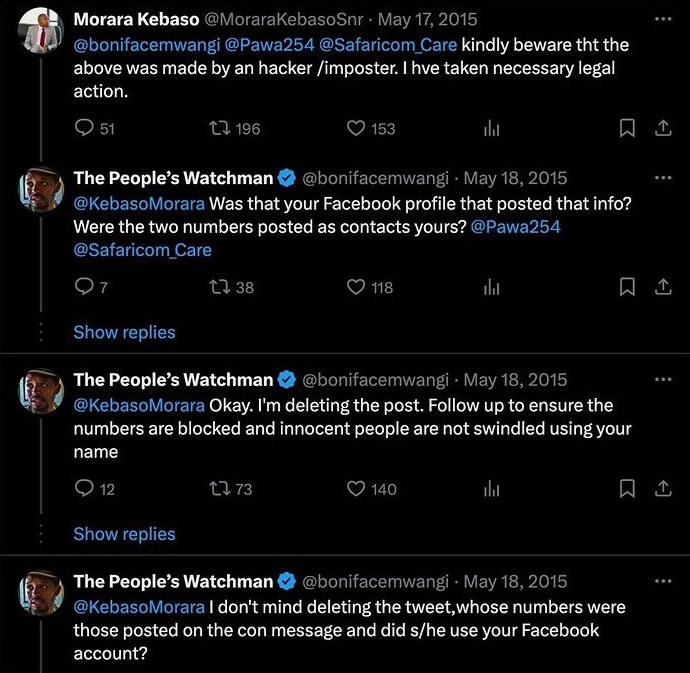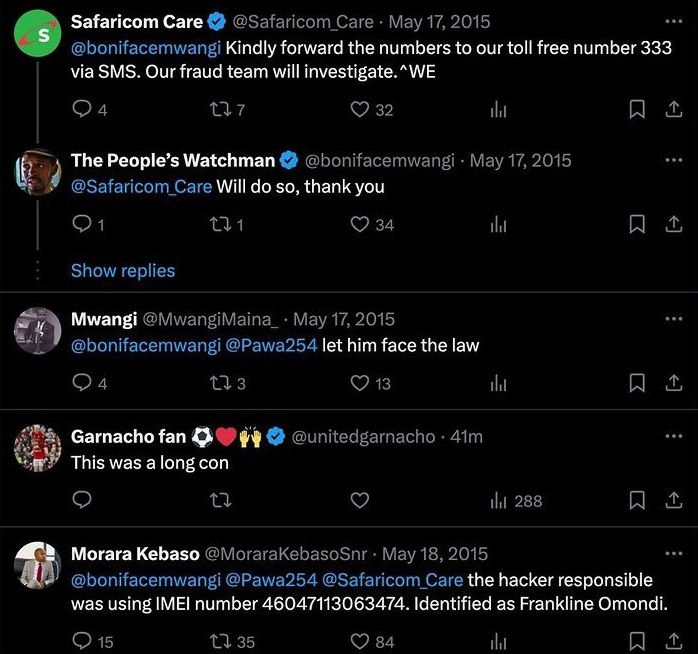
The controversy dates back to May 2015 when Mwangi took to Twitter to accuse an individual using Kebaso’s name of running a scam tied to his organization, Pawa254.
“Kebaso David Morara is using 0706 443735 & 0711 302963 to con people using @Pawa254’s name. Pls RT Cc @Safaricom_Care,” Mwangi tweeted, bringing the matter to the attention of his followers and Kenya’s largest telecommunications provider, Safaricom.

Kebaso, in turn, responded with an explanation, stating that his account had been compromised by an imposter.
He tweeted, “@Bonifacemwangi @Pawa254 @Safaricom_Care kindly beware tht the above was made by an hacker/imposter. I have taken necessary legal action,” asserting that he was not behind the scam.

In a follow-up message, Kebaso added more details about the hacker, who he claimed was identified as Frankline Omondi.
“The hacker responsible was using IMEI number 46047113063474. Identified as Frankline Omondi,” Kebaso wrote, pointing to specific technical information he had gathered about the alleged perpetrator.

The exchange, long dormant in the archives of Twitter, has recently gone viral again, underscoring the enduring relevance of cybersecurity issues and personal data protection in an increasingly digital world.
With identity theft and online scams still prevalent, the conversation is resurfacing at a time when digital literacy and safety measures are more crucial than ever.
While the original accusations and responses may have faded from immediate public memory, the incident’s reemergence highlights the lasting impact of online claims and the importance of addressing such issues in the moment.
Related: “I’ve Always Had A Bad Feeling With This Guy” Nicki Bigfish Voices Distrust In Morara Kebaso’s Activism

Leave a Reply